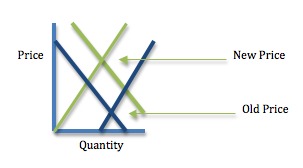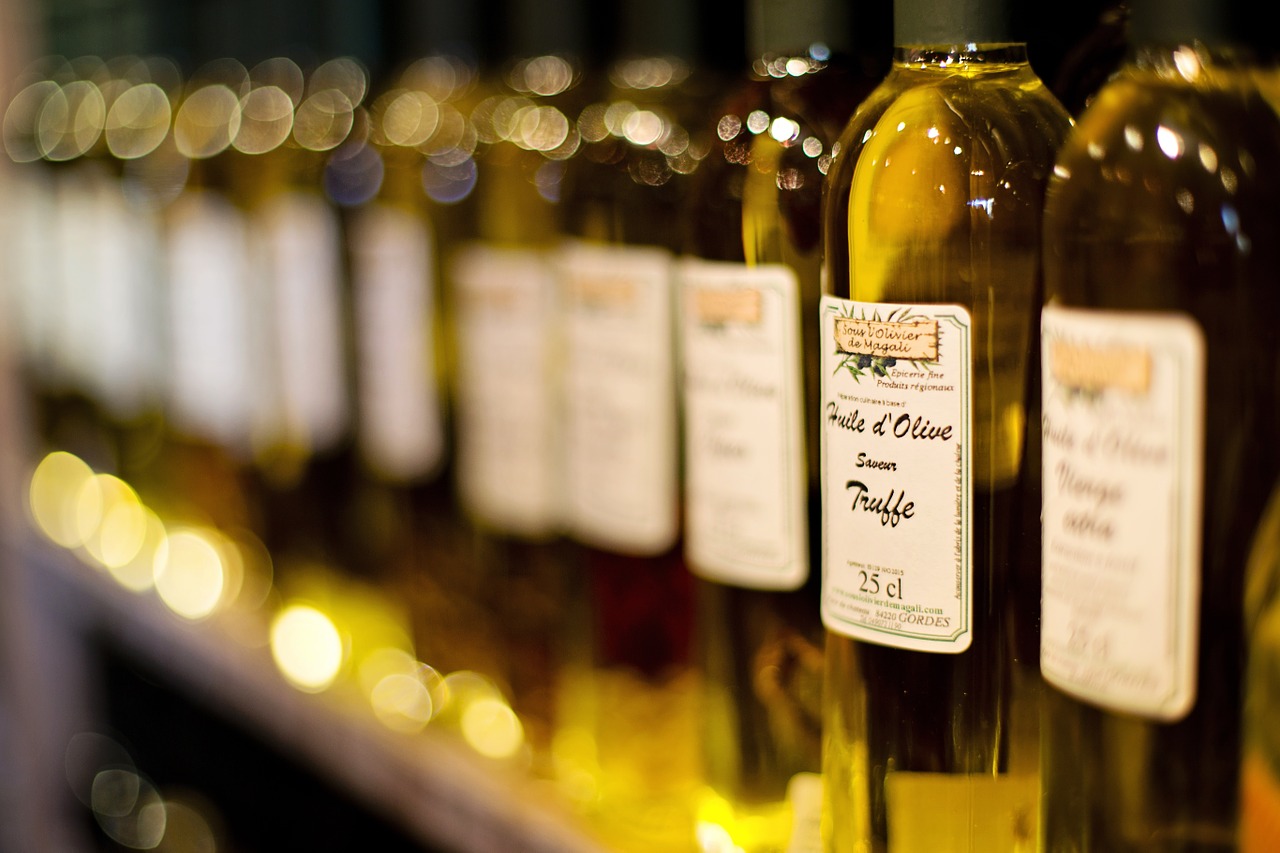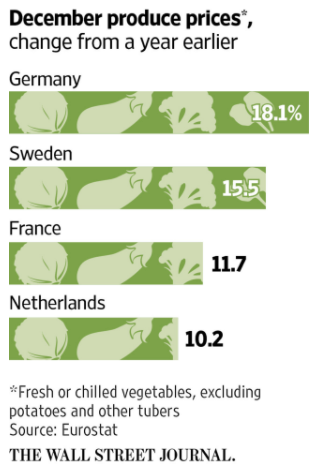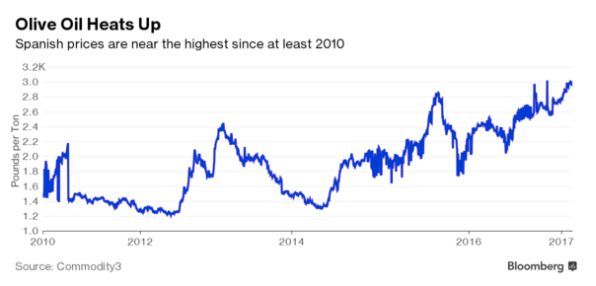Lettuce and olive oil have just become more expensive.
Where are we going? To rationing.
Rising Produce Prices
Floods and then chilly weather in Spain reduced planting and crop yields. One result was an Iceberg lettuce cap of three heads per person at Tesco in the U.K. Actually most people don’t even want three heads until they hear there is a shortage. And that makes it even worse.
In much of Europe, zucchini, eggplant, peppers and other produce prices are way up:
Rising Olive Oil Prices
Making it even worse for us salad lovers, olive oil has been hit also. That bad weather in Spain pushed olive oil prices up by 10%. Similarly, Italian olive oil is 33% pricier because groves were damaged by fruit flies and bacteria. And yes, Greek groves were hit too. Their olive oil output is down by 50%.
Here we can throw China into the picture as its demand for olive oil soars.
Below you can see the rise in Spanish olive oil prices:
Our Bottom Line: Rationing
At this point we would usually turn to demand and supply. Because supply decreases when it shifts upward and demand increases to the right, price goes up:

This time though, let’s consider rationing. When there is a shortage, rationing is quite obvious. During World War II we had to use coupon books to ration items like butter, sugar, and gasoline. Because of inadequate supply, Tesco is rationing lettuce.
Actually though, the supply of everything is limited. As a result, societies always have to ration. In the U.S., most goods and services are rationed through a market system. Acting as a rationing mechanism, market system prices decide who can get what.
So, when anyone complains that a good or a service will be rationed, do remember that everyday, everything is rationed. It just becomes more extreme when you can only get three heads of lettuce at Tesco.
My sources and more: The Wall Street Journal and the BBC have the whole produce shortage story and Bloomberg has the olive oil facts.








